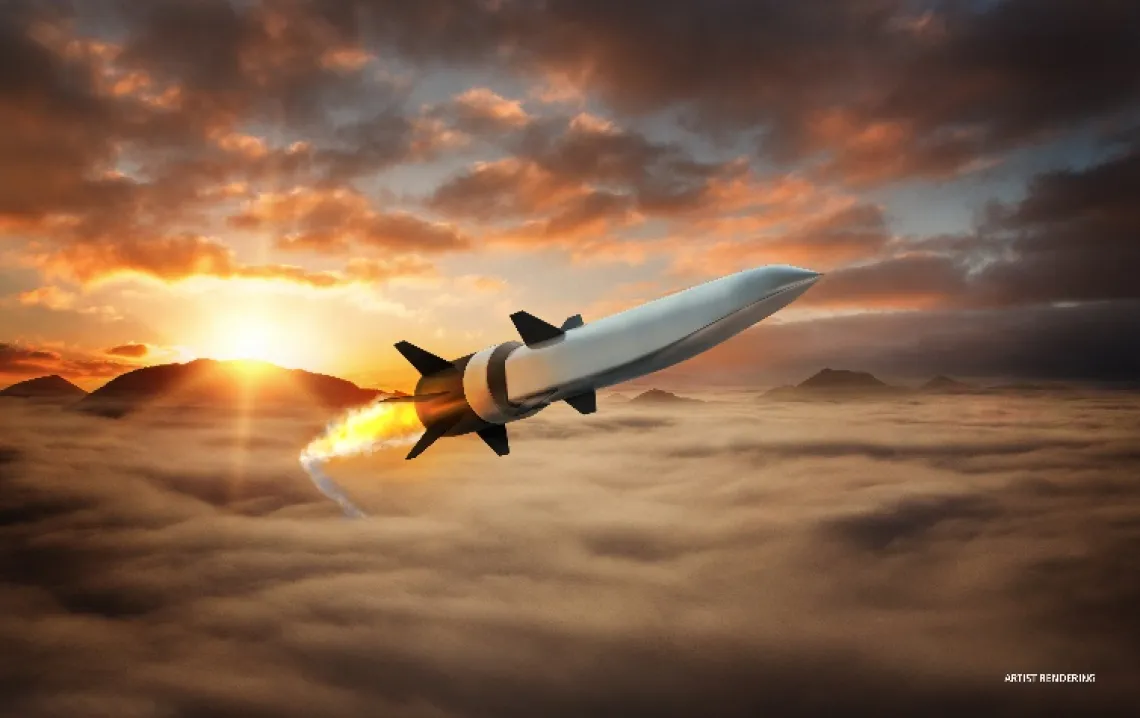Arizona Hypersonics Research is Critical to National Security

The U.S. Department of Defense has identified hypersonics weapons and counter-hypersonics capabilities as “the highest technical priority for the nation.”
With this burgeoning technology that is so critically important to our national security, Arizona has an opportunity to be a major player in this new frontier of national defense – but investments are required now.
Hypersonic technology refers to systems that travel and maneuver at Mach 5 or faster, which translates into more than 3,800 miles per hour. Russia recently announced their development of a hypersonic glide vehicle that flies at speeds exceeding Mach 27 and China is investing heavily to further develop its existing hypersonics capabilities.

At the federal level, we’ve seen that great things can happen when industry and academic institutions partner to develop advanced weapons for the good of our country – and the next big playing field is hypersonics. The Department of Defense will have operational systems in the field in the near future; its proposed budget through fiscal 2024 calls for upward of $10.5 billion in hypersonic weapons development, with $100 million dedicated to research partnerships between industry and universities.
While hypersonics research and technology is gaining traction at the federal level, there is a new opportunity for Arizona to become a leader in the future of defense. Tucson-based Raytheon Missile Systems and The University of Arizona have long had a wildly productive relationship, partnering on research, manufacturing, and workforce development. Raytheon is hiring University of Arizona engineers as fast as they can graduate.
Our organizations are again aggressively investing in our partnership this year. The University of Arizona is home to the state’s only public wind tunnels, equipment used to test and understand high-speed flight and maneuvering. One tunnel is operational and the other will be online in the coming months, but neither can support tests at speeds above Mach 5.
As part of this year’s University budget request, we have worked together to develop a highly targeted investment in the wind tunnel infrastructure to allow for items such as static pressure scanners, diffuser upgrades and signal conditioning channels – all designed to make the tunnels capable of testing at speeds of Mach 5 or greater.
The budget request is as important as it is technical and targeted. Here’s what the wind tunnel upgrade means for Arizona:
- Industry can test and understand hypersonic travel in our own backyard, rather than shipping products to other states like Indiana or California. Raytheon is a customer as much as a partner to the University, which means we pay for our wind tunnel test time.
- By keeping the research in Tucson, students and faculty at the University of Arizona not only can be exposed to hypersonic technology but also can lead the nation on new research and advancement.
- As one of only a handful of available hypersonic tunnels in the United States, the University of Arizona would become a magnet, opening opportunity to attract other space and defense companies. Remember, hypersonic speeds have untapped potential for space research as well as defense.

You should know there is stiff competition for the future of hypersonic research. Indiana has made huge investments at Purdue and Notre Dame, and Texas A&M recently announced a joint state and university investment of $130 million specifically for hypersonics research and development. Arizona cannot afford to fall behind in our hypersonics research capability.
Raytheon and The University of Arizona will continue to invest in our existing relationship. We have an opportunity to support research advancement and technology upgrades in the state budget. Our thanks to Gov. Doug Ducey for his commitment to the university request, and we encourage all of our legislators to support the funding and infrastructure required to make Arizona competitive in hypersonics research. Arizona lawmakers can make sure our state is at the forefront of this new frontier of national defense by approving this year’s university budget request. Thank you for your consideration.
Wes Kremer is President of Raytheon Missile Systems and Dr. Robert Robbins is President of University of Arizona.

